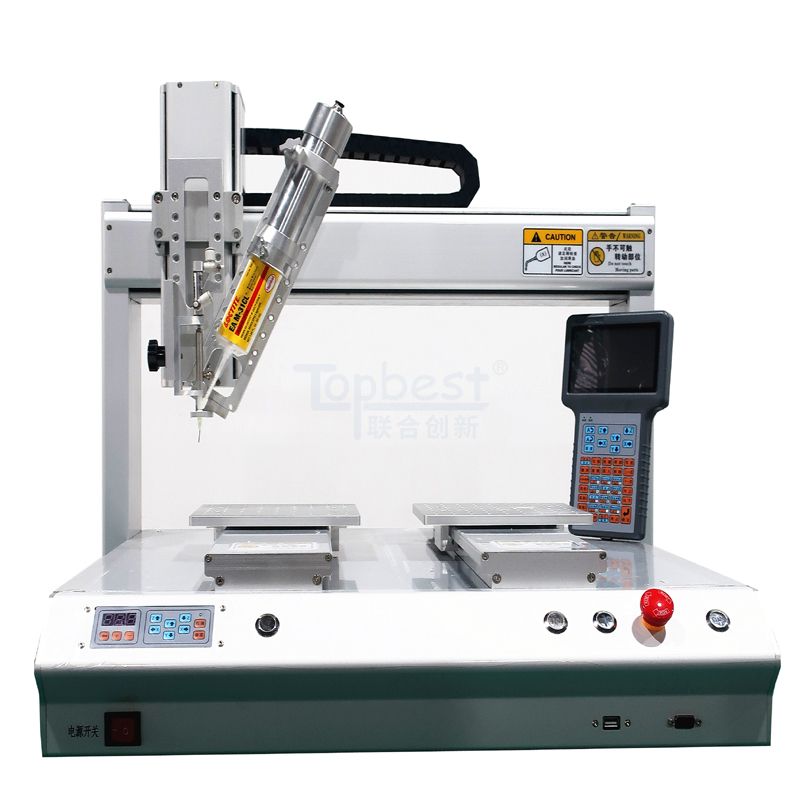What is the function of glue dispensing machine?
A glue dispensing machine, also known as an adhesive dispensing system, serves the purpose of precisely and consistently applying adhesive materials onto various surfaces or components in manufacturing and production processes. This automated device is designed to streamline adhesive application, enhance efficiency, and improve the overall quality of end products. The primary function of a glue dispensing machine includes:
Accurate Dispensing: The primary function of a automated adhesive dispensing systems is to accurately and consistently dispense adhesive materials onto specific areas with a high degree of precision. This ensures that the adhesive is applied exactly where it's needed, minimizing waste and reducing the risk of defects caused by uneven distribution.
Controlled Flow: Glue dispensing machines are equipped with mechanisms to control the flow rate and volume of adhesive being dispensed. This control ensures that the right amount of adhesive is applied, preventing overuse or underuse and optimizing material consumption.
Uniform Application: These machines ensure a uniform and consistent application of adhesive across multiple components or surfaces. This uniformity is crucial to maintaining product quality and meeting stringent industry standards.
Speed and Efficiency: Automatic glue dispensing machines operate at high speeds, significantly faster than manual application methods. This efficiency reduces production cycle times and increases output, meeting the demands of fast-paced manufacturing environments
Reduced Human Error: By automating the adhesive application process, these machines eliminate the potential for human errors and inconsistencies that can arise from factors like operator fatigue, hand tremors, and varying skill levels.

Adhesive Variety: Glue dispensing machines are designed to handle various types of adhesives, including liquids, pastes, and gels with different viscosities. This versatility allows manufacturers to use the same machine for multiple adhesive applications.
Customizable Patterns: Many dispensing machines can be programmed to apply adhesive in different patterns, such as dots, lines, or intricate designs. This customization capability ensures that the adhesive is applied according to the specific requirements of each application.
Reduction in Waste: The precise control offered by glue dispensing machines minimizes adhesive waste by ensuring that only the necessary amount of adhesive is used. This reduction in waste contributes to cost savings over time.
Improved Worker Safety: Glue dispensing machines contribute to improved worker safety by reducing exposure to potentially hazardous adhesive materials and fumes. Operators are not required to be in close proximity to the adhesive during application, minimizing health risks.
Data Logging and Monitoring: Many modern glue dispensing machines come equipped with data logging and monitoring features. These features record important information about each adhesive application, such as volume, location, and time. This data can be used for quality control, process optimization, and troubleshooting.
Traceability: The data collected by the dispensing robots can be used to track and trace adhesive application to specific batches or products. This traceability is particularly useful for identifying potential issues or defects and ensuring product quality.
In summary, the primary function of a glue dispensing machine is to automate and optimize the process of applying adhesive materials in manufacturing and production environments. By offering precise control, uniformity, speed, and reduced human error, these machines play a crucial role in enhancing efficiency, product quality, and overall operational effectiveness.

